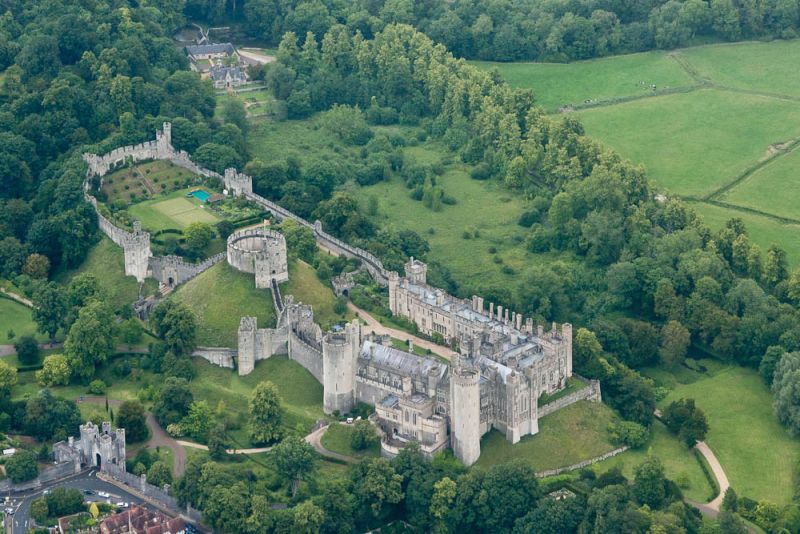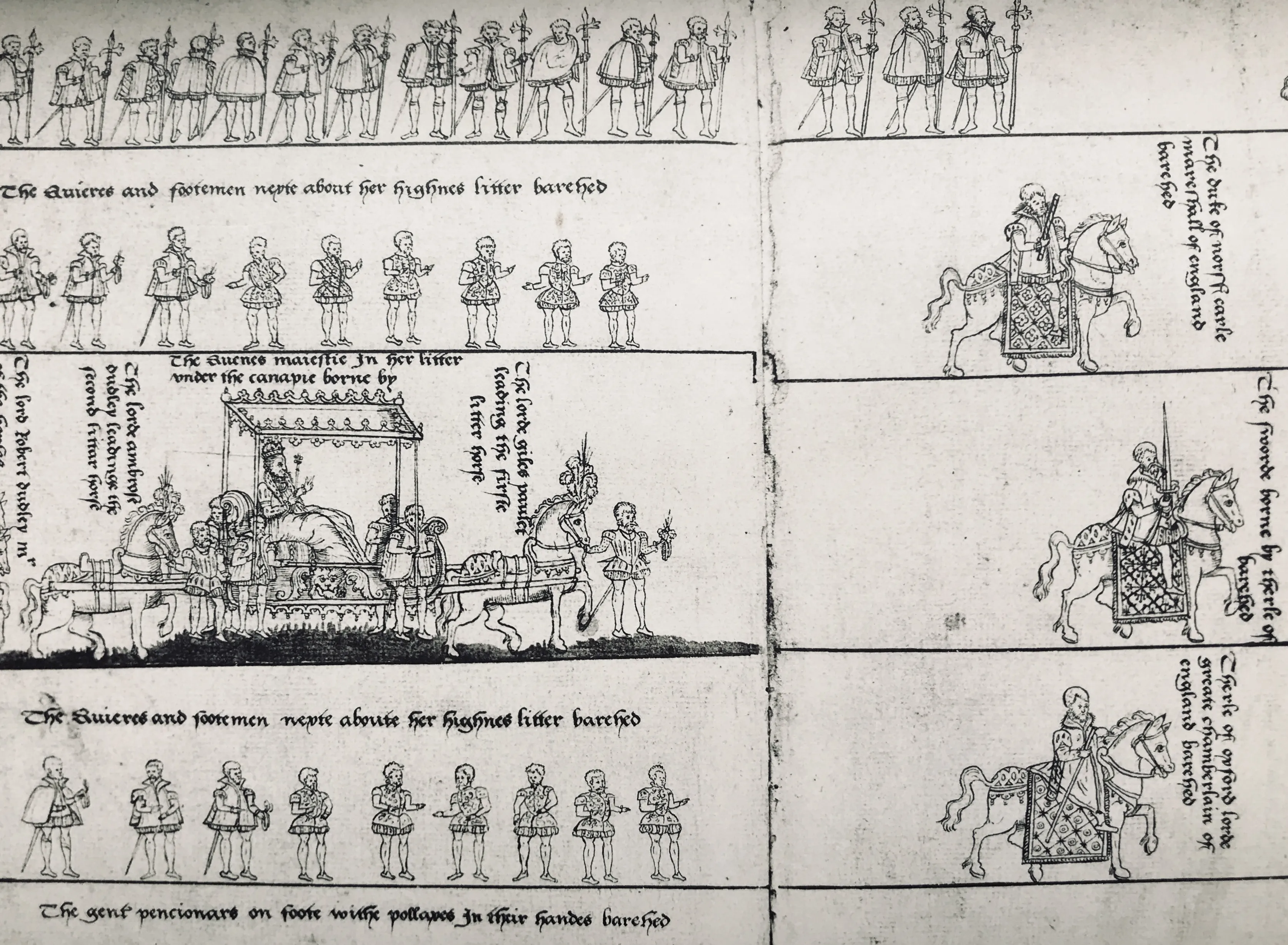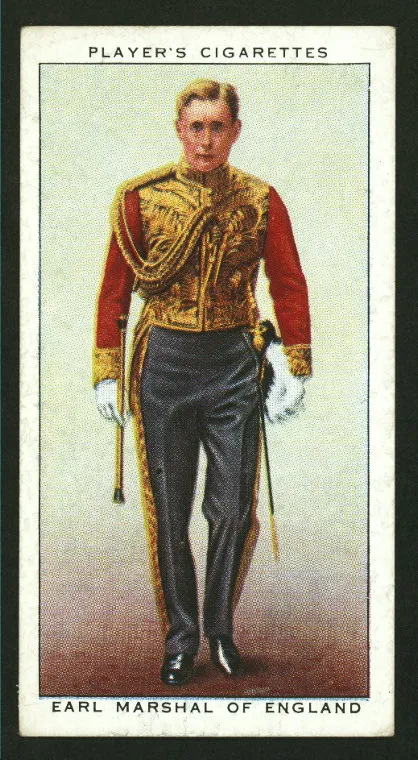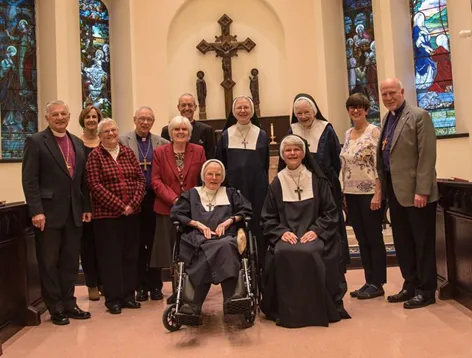
Catholic and Anglican nuns defend religious freedom in New York’s highest court
 Anglican nuns from Sisterhood of Saint Mary (photographed with bishops from the Anglican Church of North America’s Diocese of the Living Word) are among those suing the state of New York for requiring that they cover abortion in their health plans. / Credit: Photo courtesy of Becket Law
Anglican nuns from Sisterhood of Saint Mary (photographed with bishops from the Anglican Church of North America’s Diocese of the Living Word) are among those suing the state of New York for requiring that they cover abortion in their health plans. / Credit: Photo courtesy of Becket Law
Washington, D.C. Newsroom, Apr 17, 2024 / 14:15 pm (CNA).
A coalition of Christian groups — including Catholic nuns, Anglican nuns, Catholic dioceses, and other faith-based ministries — defended their religious freedom rights to abstain from covering abortions in their health care plans in front of New York’s highest court on Tuesday.
The New York State Court of Appeals heard oral arguments in a lawsuit that challenges a New York Department of Financial Services regulation that could require the organizations to cover “medically necessary” abortions. Although the law includes a narrow religious exemption, the strict criteria needed to qualify for the exemption could prevent many faith-based organizations from being approved.
Even though the New York State Court of Appeals previously upheld the regulation, the United States Supreme Court asked that the court reconsider its ruling in light of the new religious freedom precedent set in 2021.
Noel Francisco, the lawyer representing the religious groups, told the seven-judge panel that the regulation would force these groups to violate their religious beliefs. He said the narrow religious exemption allows some faith-based groups to abstain from funding abortion but that others fail to qualify, which effectively lets the state “pick religious winners and losers.”
Per the state regulation, a faith-based organization would only qualify for the exemption if it primarily employs people who share in its religious tenets and primarily serves people who share in its religious tenets. Effectively, charitable faith-based organizations that provide services to people regardless of their faith are unable to qualify.
In his oral arguments, Francisco argued that the law is not generally applicable because it does not treat all religious groups equally and prevents some faith-based groups from qualifying for an exemption based on its narrow criteria. Under the strict rules, he noted that the ministry of St. Teresa of Calcutta, widely known as Mother Teresa, would not even be able to qualify for a religious exemption under such rules.
“Under this law, the state would have the discretion to deny a religious employer exemption to Mother Teresa and the sisters of Calcutta because, the last time I checked, the poor people of Calcutta were not predominantly Catholic,” Francisco told the judges. “This is a regime that is contrary to the Supreme Court precedent from root to branch.”
The judges challenged Assistant Solicitor General Laura Etlinger, who represented the state agency that promulgated the regulation, during oral arguments. One of the primary concerns expressed by the judges was that the regulation would force faith-based ministries to either provide abortion coverage or drastically curtail their religious mission to conform themselves to the exemption criteria.
In her oral arguments, Etlinger claimed the state drew “a reasonable line” when setting the criteria for an exemption. She further argued that ruling against the state would “discourage the state from providing accommodations” and the result would be “restrictions on free exercise rather than promoting free exercise.”
Etlinger told the judges that there is “deference [given] to the requesting objector” when an organization applies for the exemption and noted the organizations suing the state “have never sought an exemption.”
In a rebuttal, Francisco countered that his clients did not apply for an exemption because they provide services to people regardless of faith and clearly did not meet the criteria set in the state regulation.
The United States Supreme Court requested that the New York State Court of Appeals reconsider the case in light of the religious freedom victory in Fulton v. City of Philadelphia. In this case, the Supreme Court ruled that Philadelphia could not discriminate against faith-based adoption services that refuse to facilitate adoptions for homosexual couples.








